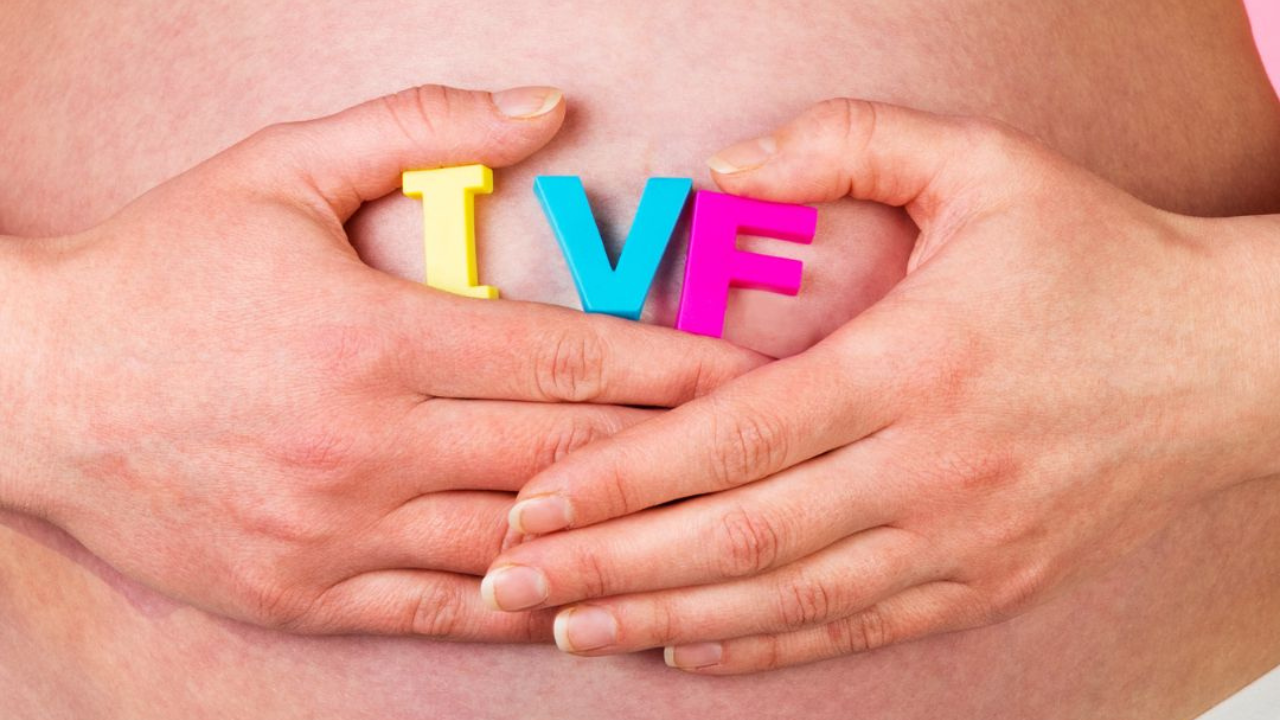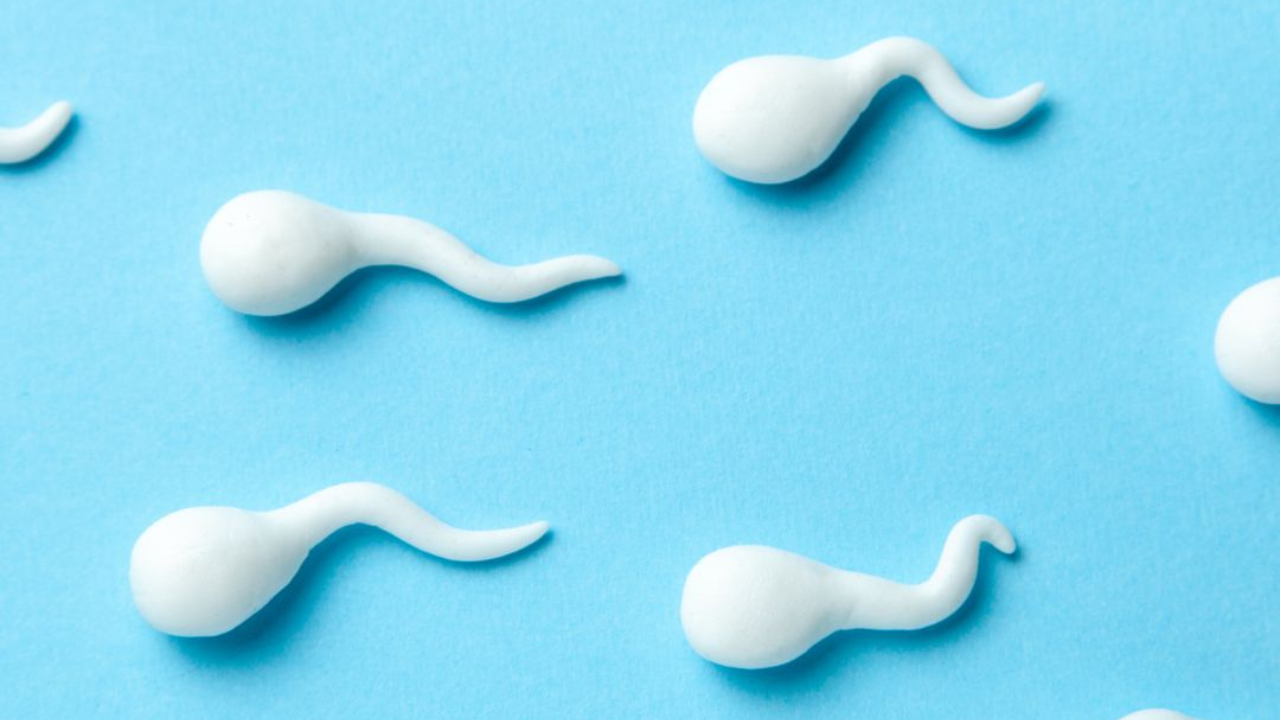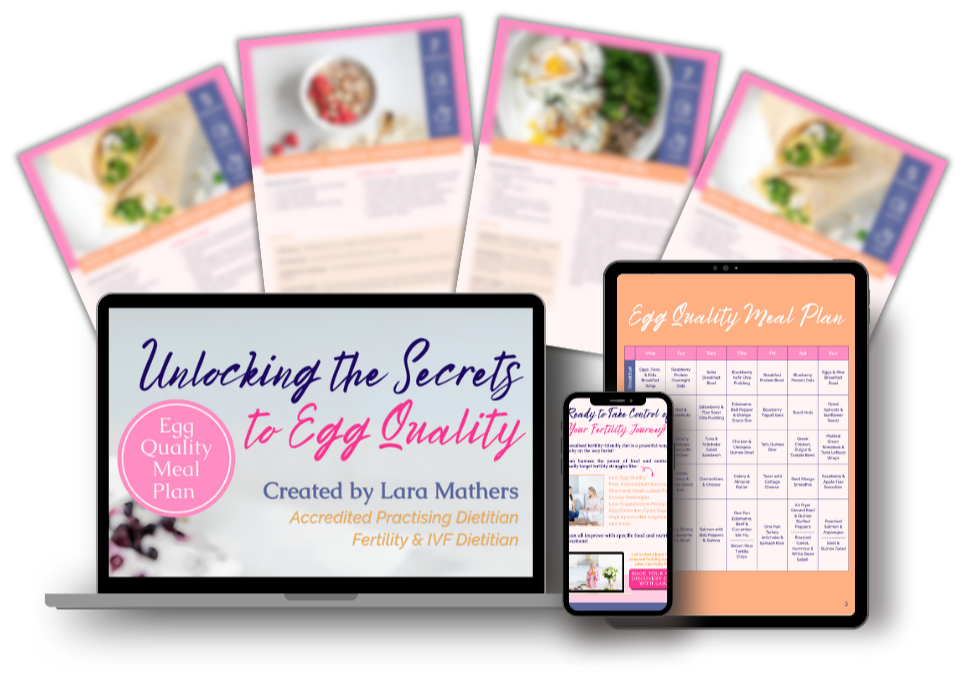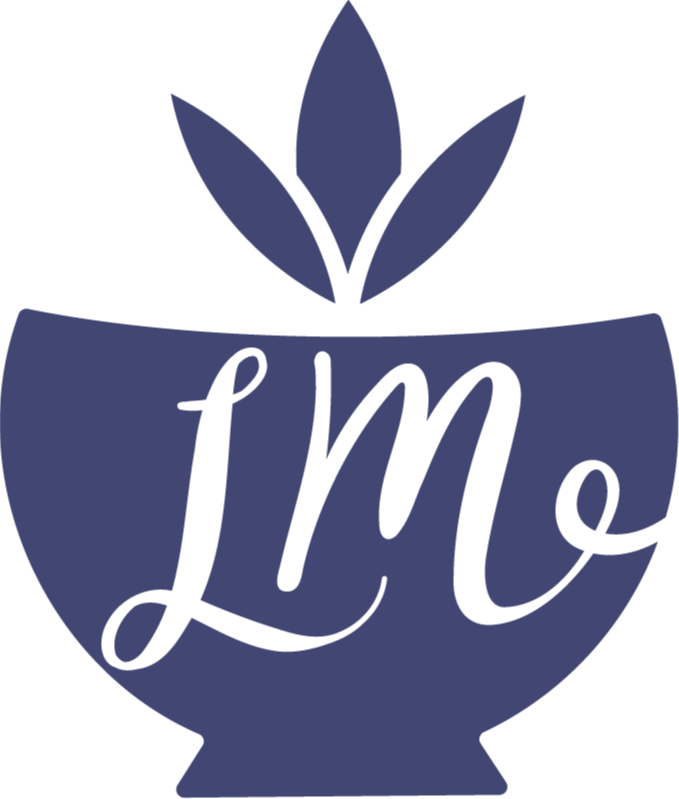Optimising Your Diet for IVF Success: What You Need to Know

A question I get asked all the time is, “What should I eat whilst doing IVF?”
And yeah, if I was about to invest the cost of a new car into fertility treatments, I would want my body to be in peak condition. It’s a no-brainer!
Science tells us your diet plays a crucial role in your IVF journey. Making the right nutritional choices can improve your chances of success. So, here’s how you can fuel your body for optimal fertility outcomes.
Understanding IVF and Alternative Fertility Treatments

Before diving into an IVF-specific diet, it’s essential to understand that not all fertility treatments involve IVF right away. Depending on your specific fertility challenges, your specialist might first recommend medicated cycles with ovulation induction, intrauterine insemination (IUI), or intracytoplasmic sperm injection (ICSI). Regardless of the treatment path, proper nutrition can support every stage of your fertility journey.
Step One: Prepare Your Body Like You Would for Pregnancy
- A fertility-friendly diet starts with the same principles as a pregnancy diet. Here’s what you should do first:
- Get comprehensive blood tests to assess your nutritional status.
- Optimise your weight, whether that means gaining or losing a few kgs to support hormone balance.
- Start the right nutritional supplements to fill any gaps in your diet.
- Manage any underlying dietary conditions such as PCOS, endometriosis, or thyroid issues.
Working with an accredited fertility dietitian ensures you receive personalised guidance tailored to your unique needs.
Key Dietary Factors for IVF Success
Fertility nutrition isn’t just about eating well—it’s about optimising specific factors that influence conception. Let’s break them down.
1. Egg Health: Giving Your Eggs the Best Start
It takes approximately three months for eggs to mature, so ideally, you should follow a fertility-focused diet for at least three months - four months is better - before egg retrieval. Here’s what supports egg health:
- Omega-3 fatty acids (found in oily fish) help reduce inflammation and support cell membranes (Vujkovic et al., 2010).
- Zinc (found in red meat, beans, and legumes) is essential for cell division and hormone regulation.
- Antioxidants (from a variety of colorful vegetables) help combat oxidative stress that can damage eggs.
- Coenzyme Q10 (CoQ10) supplementation may enhance egg quality, particularly for women over 35.
- Avoid Advanced Glycation End-products (AGEs) by opting for gentler cooking methods like boiling, poaching, or steaming on the stove top, instead of grilling, frying and using the microwave excessively. High levels of AGEs in the blood have been linked to reduced ovarian response.
2. A Regular Menstrual Cycle for Consistent Ovulation
If you’re undergoing IVF, medications often regulate ovulation. However, if your cycle is irregular, managing body weight can make a significant difference. Whether it’s losing or gaining a few pounds, adjusting your weight can help balance fertility hormones and improve egg retrieval outcomes (Santoro et al., 2016). Even small changes can have a big impact, and your dietitian can guide you through this process.
3. A Receptive Uterus: Creating the Ideal Home for Your Embryo
A thick, nutrient-rich uterine lining is crucial for embryo implantation. Research suggests that replacing refined carbs with low-glycemic, whole-grain options can improve uterine receptivity (Chiu et al., 2018). Ensuring you are eating plenty of foods rich in zinc, vitamin E, vitamin C, and dietary nitrate can further support implantation.
4. Sperm Health: The Often Overlooked Factor

- Optimising sperm quality is just as critical as improving egg health. I have tried to order these recommendations in order of importance! Here’s what men should focus on:
- Limit trans fats found in fried and processed foods like bacon, sausage and fast-food, as they negatively affect sperm motility (Li et al., 2021).
- Keep the boys cool: consider using Cool Beans Underwear and get a whopping 20% off with my code LARA20.
- Eat fish twice a week, prioritising low-mercury options like salmon and mackerel (Chiu et al., 2018).
- Ensure adequate Vitamin C intake through fruits and vegetables to improve sperm DNA integrity (Ruder et al., 2008).
- Include Vitamin E-rich foods like almonds and peanuts to support sperm membrane health.
- Get enough Zinc, which is essential for sperm production, from meat and legumes (Li et al., 2021).
- Consider CoQ10 supplementation to support sperm motility and function.
Personalised Nutrition for the Best Results
Every individual’s nutritional needs are different, and the best way to ensure you’re eating optimally for IVF success is to consult a fertility dietitian. With the right dietary approach, you’re not just improving your odds of a positive pregnancy test—you’re setting the foundation for a healthy pregnancy and baby.
By prioritising your diet now, you’re taking a proactive step toward your fertility success story. Don’t leave it to chance—fuel your body with the nutrients it needs and maximise your IVF investment!
References
- Vujkovic, M., et al. (2010). "The preconception Mediterranean dietary pattern in couples undergoing IVF/ICSI treatment increases pregnancy rates." Human Reproduction, 25(12), 3009-3016.
- Chiu, Y. H., et al. (2018). "Mediterranean diet and predictors of IVF success: the Environment and Reproductive Health (EARTH) Study." Human Reproduction, 33(5), 920-929.
- Ruder, E. H., et al. (2008). "Dietary antioxidant intake and semen quality in young men." Human Reproduction, 23(9), 2105-2112.
- Bermejo-Alvarez, P., et al. (2022). "Advanced glycation end products and reproductive function: The impact of dietary and lifestyle factors." Reproductive Biology and Endocrinology, 20(1), 108.
- Li, J., et al. (2021). "Associations between dietary fat intake and semen quality among men attending a fertility clinic." Fertility and Sterility, 116(3), 726-735.
- Santoro, N., et al. (2016). "Weight and reproductive health: A review of the evidence." Obstetrics and Gynecology, 127(3), 597-604.




